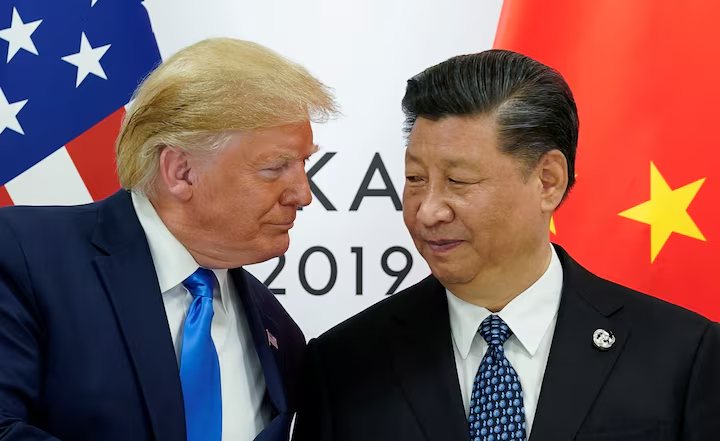Former U.S. President Donald Trump is likely to speak soon with Chinese President Xi Jinping, according to recent comments by U.S. Treasury Undersecretary for International Affairs Kristin Bessent. Speaking at a financial forum on June 1, Bessent indicated that diplomatic channels between Washington and Beijing remain active and that a direct conversation between the two leaders is anticipated in the near future.
Bessent emphasized that while no official date has been confirmed, both sides have shown interest in re-engaging at the highest level amid ongoing economic and geopolitical tensions. “We expect that former President Trump and President Xi will have an opportunity to speak soon,” she said during remarks at the Asia-Pacific Economic Cooperation (APEC) financial ministers’ meeting.
The announcement comes amid a backdrop of renewed economic friction between the two world powers. Trump’s administration has maintained a tough stance on China, particularly concerning trade imbalances, tariffs, and national security-related technology issues. While official White House confirmation is pending, Bessent’s comments signal an attempt to stabilize relations that have been strained by recent policy moves.
Trump has recently announced significant increases in tariffs on various Chinese goods, including electronics, steel, and green energy components. These moves have triggered strong reactions from Beijing, including threats of retaliatory tariffs and complaints filed with the World Trade Organization (WTO).
“We are committed to defending American economic interests while remaining open to dialogue,” Bessent stated, adding that cooperation on macroeconomic stability, financial regulation, and climate finance remained key areas where progress could be made despite broader tensions.
Chinese officials have also hinted at the need for open communication. Earlier in the week, China’s Ministry of Foreign Affairs released a brief statement expressing hope that the two nations could resume constructive dialogue “based on mutual respect and equality.”
Observers say a phone call or virtual meeting between Trump and Xi could serve as a critical step in resetting bilateral relations. Experts suggest the conversation would likely touch on a range of sensitive topics, including trade policy, semiconductor supply chains, tensions over Taiwan, and global security matters.
Though both leaders have previously engaged in high-stakes diplomacy during earlier phases of the U.S.-China trade war, recent years have seen fewer direct interactions. Trump has publicly criticized China’s trade practices, labeling them “unfair” and accusing Beijing of undermining American manufacturing. Xi, in turn, has cautioned against what he calls foreign interference in China’s internal affairs.
Markets responded cautiously to news of the potential dialogue. Global stock indices remained largely steady, though analysts noted that any sign of reduced tension between the U.S. and China could bring relief to investors concerned about the risk of a protracted trade confrontation.
Bessent reiterated that the Treasury Department continues to monitor international financial developments closely and supports efforts to maintain financial market stability. She also highlighted that future talks could help mitigate volatility and build trust between the world’s two largest economies.
As anticipation grows over a possible Trump-Xi call, analysts caution that expectations should remain measured. “While a conversation could open the door to more pragmatic negotiations, deep structural issues remain unresolved,” said trade analyst Marcus Lindberg of the Center for Strategic Economics.
No official readouts or schedules have been released from either the U.S. or Chinese government, but preparations for such a call are reportedly underway. If the conversation proceeds, it will mark a notable moment in U.S.-China relations and could influence the course of future economic engagement between the two superpowers.
Source; Reuters



